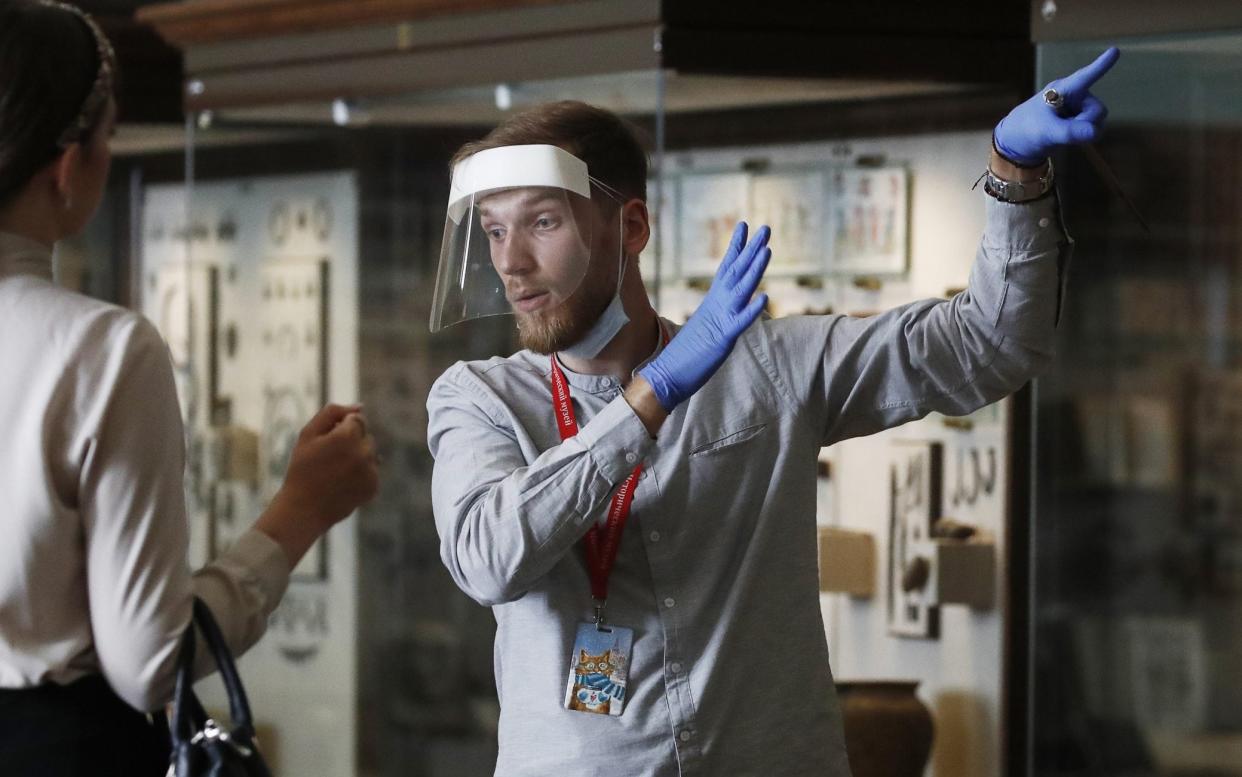Plastic visors aren't safe and should be worn with masks, say Swiss

Plastic visors fail to provide adequate protection from coronavirus infection and should only be worn in combination with a face mask, Swiss authorities have announced.
Health officials came to the conclusion after discovering that only people wearing plastic visors were infected during an outbreak the canton of Graübunden.
They found a worrying trend when investigating the cluster among staff at a hotel, namely that all of those infected wore plastic face shields, while those wearing face masks came out unscathed.
Several employees of the hotel tested positive along with a guest.
Rudolf Leuthold, head of the cantonal health department in Graübunden, said the face shields were the common denominator in infections.
“It has been shown that only those employees who had plastic visors were infected. There was not a single infection among employees with a mask.”
As for the guest, he told Swiss news outlet 20 Minutes: “We know that (he) was served by employees with plastic visors."
On Tuesday, the cantonal health authorities in Graübunden said plastic face shields didn’t work.

Not only are they ineffective, but they may also provide wearers with a false sense of security, warned cantonal doctor Marina Jamnicki.
The Federal Office of Public Health concurs, saying it too has found increased infections among people who wear face shields.
“The visors do not serve as an alternative to hygiene masks. Visors can be worn with masks to further enhance your own protection,” spokesman Yann Hulmann told 20 Minutes.
The federal government says it is mulling amending the rules for hospitality workers, making it compulsory to wear face masks.
Switzerland imposed a mask requirement on public transport on July 6th, more than two months after they were made compulsory in most neighbouring countries.
Masks are not compulsory in shops or supermarkets in Switzerland on a federal level. However, two cantons, Vaud and Jura, unilaterally chose to make them a requirement on July 6.
Since that date, people found to be exposed to the virus through contacts with an infected person are required to self-quarantine for 10 days or face a possible fine.
Switzerland registered 142 new infections in the past 24 hours, compared to 132 the previous day, and has suffered 1,688 deaths in all.

 Yahoo News
Yahoo News 
